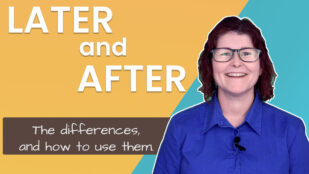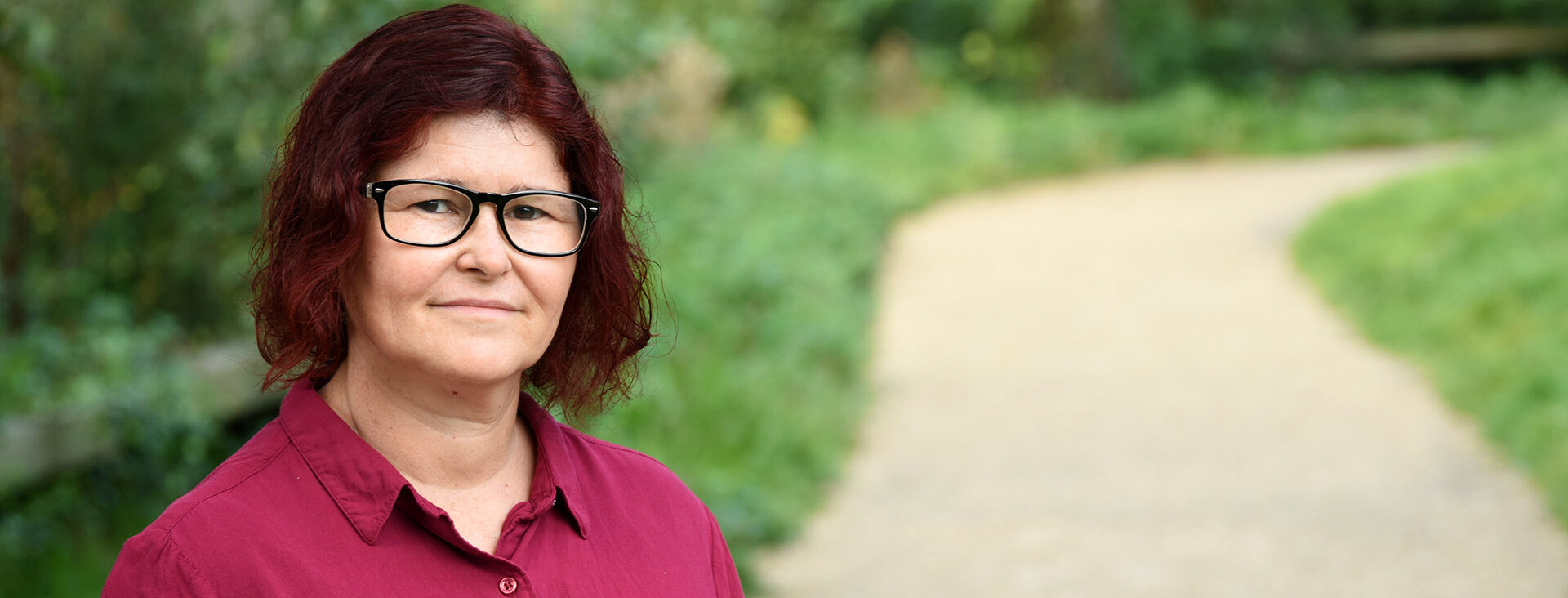When do you use ‘after’ and ‘later’? Today we are exploring these two words that have similar meanings but are used in different ways. Watch my video to find out more about the differences.
LATER
We’ll start with Later. Later is an adverb. Use later to talk about a time in the future.
Examples:
– He’ll be back later.
– We are meeting for coffee later.
– They are moving to Spain later in the year.
A synonym for later is another adverb, afterwards (or afterward without the ‘s’ in the USA). No set time in the future.
Example:
– I’m busy right now but we can meet up afterward(s).
A little, much, and not much can be used with later.
Examples:
– She arrived out of breath and the concert began a little later.
– We’re leaving much later than the others, so don’t wait for us.
– My father comes home from work not much later than my mother.
Later is also an adjective. It is used to describe something happening after a mentioned time.
Example:
– The 2.00 session has already started, so you will have to see a later movie.
Later is often used this way with scheduled transport.
Example:
– She missed the 10.30 bus, so she had to catch a later one.
Later bus; a later train; the later ferry.
AFTER (as a preposition)
After is usually a preposition. It needs to join two things together. As a general rule ask yourself this question – after what?
There are several different ways to use after as a preposition. Following a time or event. If something happens after a particular time or event, it happens in the time period that follows that time or event.
After goes before a noun, pronoun or noun phrase.
Examples:
– I will be home after 5 pm.
– George came home after midnight.
– Can you help me do the dishes after dinner?
– I might go to the cinema after work.
Following an order, like in a list.
Examples:
– B comes after A in the alphabet.
– The people were lined up one after the other.
Following or looking for (someone or something) – informal
Examples:
– He ran after the customer who had forgotten to pay.
– My son likes it when I chase after him.
– What kind of job are you after?
When an amount of time has passed.
Examples:
– After 20 minutes, my coffee was finally ready.
– They met at university and were married after 6 months.
Named for
Examples:
– The baby was named after the late singer, John Lennon.
– In 1932, it was renamed the Tate Gallery after sugar magnate Henry Tate.
The next two are for intermediate learners, so don’t worry about them yet if you are an elementary or pre-intermediate learner.
Because of (something that happened)
Example:
– I’m so angry with him after the terrible things he said to me.
Despite (something that happened)
Example:
– Why was she so unkind to me after everythingI have done for her?
AFTER (as a conjunction)
After can also be used as a conjunction to indicate that something happened later than another event.
After as a conjunction can go at the beginning of the sentence or in the middle. However, if you use it in the middle, remember that the second part of the sentence happened first. Sounds confusing, but it’s not really!
Examples:
– I found her scarf on the sofa after she went home.
– I’ll go to bed after I have a shower.
– After leaving school, Jane worked in an office.
– After signing the form, please return it to the receptionist.
AFTER (as an adverb)
After can also be an adverb. It means later than someone or something else.
Remember to keep asking yourself the question – after what? As an adverb, after can be at the end of the sentence, unlike with a preposition (except in an informal question) or a conjunction. Something needs to be either mentioned or implied to show what it is later than.
Examples:
– Fred called round at noon but left soon after.
After what? After he “called round” (call round = to visit)
Also note that soon after is commonly used to show that not much time passed between the two events – it’s the same as a little later and not much later.
– Uncle John came over at 2 o’clock and my aunt arrived soon after.
– Uncle John came over at 2 o’clock and my aunt arrived a little later.
– Uncle John came over at 2 o’clock and my aunt arrived not much later.
Other examples of after as an adverb:
– I can’t play tennis with you next week, but I can the week after.
After what? – after next week.
– Are you going home the day after tomorrow?
– We won’t have a party for my next birthday, but we will the year after when I turn 50.
And the famous fairytale ending: They all lived happily ever after.
This one is implied – after what? After the end of the story.
AFTER, LATER, AFTERWARDS
You can use after, later or afterwards following a phrase that mentions an amount of time, to show when something happens.
Examples:
– They were married six months after they met.
– She met him two years after his wife’s death.
– I arrived home ten minutes later.
– We ordered our meal, and it came an hour later.
– He wrote about his ordeal 20 years afterwards.
BE CAREFUL not to use after when what you mean is at a later time in the future.
Incorrect Example:
– No, I’m not doing my homework now. I’ll do it after. ×
After what?
In this example you need to say:
– No, I’m not doing my homework now. I’ll do it later. √
To use after we would have to say what it is after.
Correct examples:
– No, I’m not doing my homework now. I’ll do it after dinner. √
– No, I’m not doing my homework now. I’ll do it after piano practice.√
– No, I’m not doing my homework now. I’ll do it after you leave. √
That’s all for the comparison between later and after, but here’s a little extra, for the intermediate learner.
AFTER ALL
After all (phrase) – we can use it in two ways
Firstly -to say that something unexpected happened or was true, despite everything that has previously happened.
Examples:
– It was raining, but the Fireworks Display went ahead after all.
– I thought Olivia would be too busy, but she came to the party after all.
Secondly – to add information to show the truth of what you have just said.
Examples:
– I’m sure you will win the match – after all, you are the best team in the league.
– Don’t worry if you can’t speak perfect English yet – after all you have only had one lesson!
FINALLY!
This is a British informal expression and the only time you would use the plural.
“Afters”(noun) – the sweet course of a meal, normally called pudding or dessert.
Example:
– Lovely meal! What are we having for “afters”?
But, don’t try that one if you’re not in Britain!
(There is an updated version of this lesson, that can be found here)


